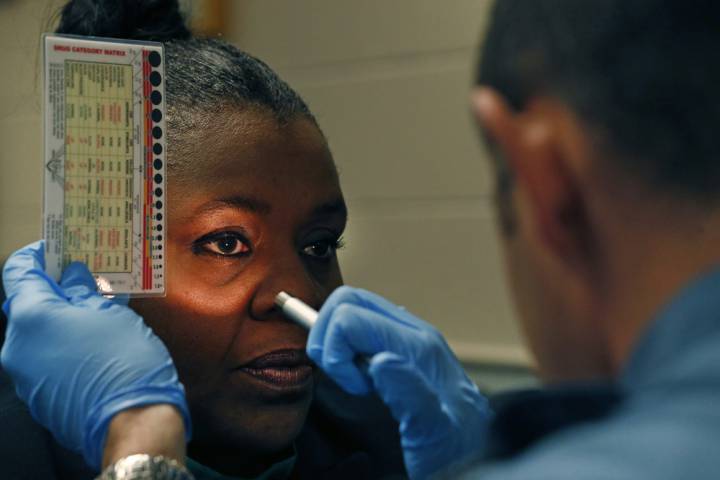
THE ASSOCIATED PRESS
Colorado police officers train to recognize drug-impaired drivers in this file image.
The study, written for the Senate by a group of doctors and researchers, was released to the public on Tuesday by the University of British Columbia.
Road accident deaths in Washington and Colorado didn’t change significantly after legalization there, compared to eight other states that didn’t legalize.
“The reassuring thing is that we did not see, in the evidence that we reviewed, any significant increases in driving fatalities or accidents associated with legalization, and I think that’s something that we can probably expect when legalization rolls out sometime later this year,” said UBC’s Michael-John Milloy, one of the study’s authors.
In both states, the number of drivers killed in accidents who tested positive for THC rose significantly after legalization. Since THC can be detected up to a month after using pot, however, it can’t be clearly linked to a later accident.
“The thing to remember is that these tests are not very specific, in the sense that what they detect is the presence of THC in someone’s blood 28 days or so before the accident occurred,” Milloy said.
“The tests cannot indicate whether someone was using or intoxicated with THC or cannabis at the time of the accident.”
Unlike alcohol, there isn’t a clear relationship between impairment and the level of a substance in the body when it comes to marijuana.
“We know people may have THC in their bloodstream, but they may not have been impaired at the time of the crash,” says Rebecca Haines-Saah of the University of Calgary, another of the study’s authors.
“It’s because of the way THC is stored in the fatty tissue is highly variable, based on body composition. You can have it in your bloodstream from anywhere from 72 hours to up to 30 days, depending.”
The U.S. experience also showed a fall in alcohol-related road deaths in states that legalized medical marijuana.
WATCH: If you’ve long wondered about the debate between marijuana and alcohol, look no further. There appears to be a clear winner when it comes to your health.
While both researchers stressed that people shouldn’t drive under the influence of any substance — “We absolutely need some general awareness that you shouldn’t be driving high,” Saah said — they also said there is reason to expect rates of drunk driving to fall as marijuana replaces at least some alcohol consumption.
“I think there is some hope that as cannabis displaces alcohol in recreational substance use, we will see changes in rates of alcohol-related driving,” Milloy says.
Both saw drivers impaired by marijuana as generally a lesser evil than drivers impaired by alcohol.
“Alcohol is a disinhibitor. It makes us make bad decisions, or allows us to make bad decisions, where cannabis does not, in general, have the same impact on people,” Milloy said. “At the same time, both cannabis and alcohol do degrade the physical and mental skills required to drive a vehicle.”
“We can look at this data and be somewhat reassured that it’s not going to be a public health crisis,” Saah says.
Source: Global News
